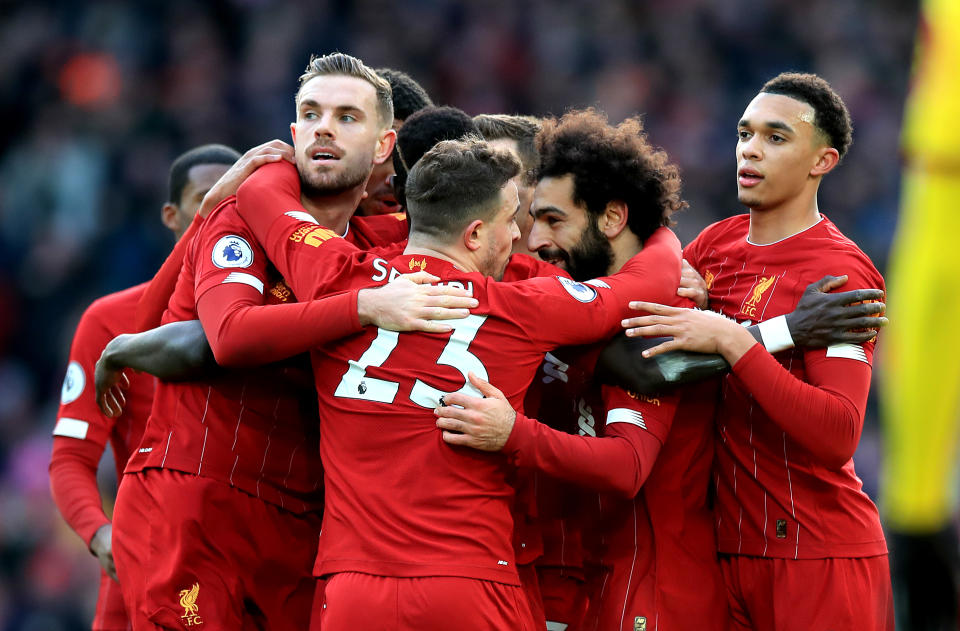Why playing the remaining Premier League games might not be the fairest solution
Just over six weeks ago, the COVID-19 outbreak hit the Premier League head-on when Arsenal manager Mikel Arteta tested positive for the virus. Soon after, all other English top-flight games were suspended.
The Gunners were also the first Premier League club to return to training on Monday. Despite applying strict social distancing measures, there is a fear that such an early return could jeopardize plans to finish the 2019-20 season.
France’s decision to cancel the remainder of the Ligue 1 and Ligue 2 seasons casts further uncertainty on the EPL’s intentions. If no sporting events will be held in France before September, does it make sense to resume them right across the English Channel?
Maybe not, but it remains desirable, at least. Not only will it relieve the financial concerns of failing to fulfill TV broadcast contracts, but it will provide some much-needed entertainment for the increasingly frustrated and housebound masses.
Another notion has arisen, especially amid the fallout of the Eredivise cancellation: It’s crucial to finish the Premier League campaign for the sake of the league’s integrity.
Logic dictates that the fairest way to conclude the season — to crown a champion and decide the relegation candidates — is to play out the remaining game weeks. Hence, teams are planning to return to training, and contingencies are being set for matches to be played in a centralized location, behind closed doors.
Upon first glance, finishing all 38 rounds of the Premier League season seems like the fairest solution in these circumstances. But unfortunately, it’s wrought with issues.

To borrow from American football parlance, one of the key problems pertains to “strength of schedule.” Some teams have played more difficult schedules than others — and this would be fine, under normal circumstances. However, when the remaining games are likely to be played in a neutral location with no home support, the playing field is no longer level for everyone.
Bournemouth, for example, sit in 18th place and were scheduled to have three away matches at teams currently residing in the top six. Watford, who are one place above Bournemouth and equal on points, had no more remaining away games at top six sides. Hence, Watford have already played more difficult away trips, while Bournemouth might have an unfair advantage as their daunting road matches are now held in a neutral location, without a partisan crowd willing them to fail.
Furthermore, Aston Villa, who are 19th with two fewer points than both Bournemouth and Watford, have also played one less game than both clubs. Is it fair that they must play that extra game in the strange confines of an empty stadium? On the flip side of the coin, Aston Villa’s relegation opponents have had to face Liverpool away this season, which they are unlikely to do for their presumed game against the champions-elect.
Another issue stems from player contracts. Traditionally, European contracts run until June 30 — and any Premier League conclusion will now run past that date. FIFA have expressed a desire to extend those contracts, but it doesn’t mean the players, or their representatives, will have to accept them.
Take Liverpool’s Adam Lallana, for example, who may have one big contract left in his career. Will he extend his current deal by a few months, and run the risk of an injury which could prevent him from landing his final deal? A general lack of match fitness across the returning league may increase the chances of such an injury.
If teams can’t get all their players to agree to temporary contract extensions, they will be put at an unfair disadvantage. Sports lawyers may be champing at the bit for the inevitable contract disputes, but the outlook isn’t good for sporting integrity.
So if finishing all 38 rounds of the season isn’t entirely fair, what are the other options?
Ending the season now without declaring a winner is unsatisfactory. Particularly for Liverpool, who are in touching distance of their first title in 30 years.
It’s also unacceptable to end the season and hand out rewards (or punishments) as they stand, due to the aforementioned schedule issues. Sheffield United, for example, could climb into sixth place and European qualification if they win their game in hand. And Aston Villa have the game in hand that could lift them out of the relegation zone.
A slightly fairer mechanism may be to project each team’s final point tally using their current points per game (PPG). Sheffield United have a PPG of 1.54, which would put their final point tally at 58.4 points. Wolves, currently a spot above the Blades, have a PPG of 1.48, which would put their final tally at 57.8. Therefore, Sheffield United would leapfrog Wolves into sixth. However, the Blades wouldn’t jump above Manchester United in fifth place, as the Red Devils’ PPG puts them at a final tally of 60.5 points.
The PPG system has its advantages, but it still suffers from issues with strength of schedule. Additionally, it doesn't account for the late-season push (or slide) that can happen with teams due to pressure. Leicester in 2014-15, for example, won seven of their last nine matches to stave off near-certain relegation. Norwich are rock-bottom right now with the same amount of matches remaining — with six scheduled against teams in the bottom half of the table.
Ultimately, there is no fair way to end the Premier League season. And, of course, it should be noted that there are far higher priorities in society right now than determining soccer outcomes.
However, the idea that playing all the 2019-20 games will restore the seaosn’s integrity and give us a satisfactory conclusion is, unfortunately, far from reality.
More from Yahoo Sports:


